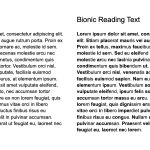Last Updated on 07/09/2023 by Eleanor Thompson
Abstract
The Socratic method, stemming from the philosophical teachings of Socrates, emphasises dialectical questioning to illuminate ideas and expose contradictions in one’s beliefs. Its focus lies in promoting logical consistency and introspection. Contrarily, the scientific method, rooted in the Renaissance and Enlightenment, employs a systematic approach to understand natural phenomena through observation, hypothesis formation, experimentation, and conclusion. While the Socratic method thrives in conversational settings and aims for philosophical clarity, the scientific method seeks empirical evidence in structured environments like laboratories. Both methods, with their distinct paradigms, contribute significantly to intellectual exploration and knowledge acquisition.
Introduction
The Socratic method and the scientific method are both crucial frameworks for exploring knowledge, understanding, and truth. While both methods champion rigorous inquiry and scepticism, their fundamental goals, processes, and applications differ significantly. In this essay, we will delve into the origins and purposes of these methods, as well as the procedures they follow, to understand the contrasting paradigms they represent.
Historical Origins and Philosophical Foundations
The Socratic Method: Named after the ancient Greek philosopher Socrates (469-399 BC), the Socratic method is a form of dialectical questioning aimed at stimulating critical thinking and illuminating ideas. This method was detailed in the dialogues of Plato, Socrates’ pupil. For Socrates, the act of questioning was more about uncovering the inherent truth within an individual’s beliefs rather than providing concrete answers.
The Scientific Method: With roots in the Renaissance and Enlightenment periods, the scientific method has evolved over centuries, being influenced by thinkers like Francis Bacon, Galileo, and Isaac Newton. This method seeks to acquire knowledge about the natural world through observation, experimentation, and the formulation of hypotheses. It aims for empirical evidence and favours objective over subjective data.
Core Purpose
The Socratic Method: This method aims to expose contradictions in one’s beliefs, promoting clarity and logical consistency. It also helps individuals to realise what they do not know—the famous Socratic paradox, “I know that I know nothing.”
The Scientific Method: The primary goal is to understand, explain, and predict natural phenomena. By using a systematic and empirical approach, it seeks to build and refine knowledge, as well as test the validity of theories and hypotheses.
Methodology
The Socratic Method:
- Begins with a statement or assertion by an individual.
- Through a series of probing questions, the interlocutor is encouraged to define, clarify, and defend their position.
- The questioning often reveals inconsistencies or contradictions in the initial belief.
- It is a continuous and iterative dialogue, aiming for deeper understanding or acknowledgment of ignorance.
The Scientific Method:
- Starts with an observation or question.
- A hypothesis is formulated to explain the observation.
- Experiments are designed to test this hypothesis.
- Data from the experiments are collected and analysed.
- Conclusions are drawn, either supporting or refuting the hypothesis.
- The findings are communicated, often leading to further hypotheses and experiments.
Application and Setting
The Socratic Method: Typically found in philosophical discourses, law education, and some pedagogical techniques. The emphasis is on critical thinking and personal introspection. Its setting is often conversational.
The Scientific Method: Applied broadly in natural sciences like physics, biology, and chemistry. Its structured approach is designed for empirical testing and repeatability. Laboratories, fieldwork, and academic journals are its common settings.
Strengths and Limits
The Socratic Method:
Strengths: Promotes deep reflection, self-awareness, and logical consistency.
Limits: Lacks empirical testing and might not lead to definitive answers.
The Scientific Method:
Strengths: Provides empirical evidence, allows for predictions, and is self-correcting.
Limits: It may not adequately address subjective experiences, values, or moral questions.
Conclusion
The Socratic method and the scientific method, though both rigorous in their pursuit of truth, operate under different paradigms. The former delves into the terrain of personal belief, logical analysis, and introspection, while the latter is anchored in empirical observation, experimentation, and evidence. In a comprehensive education and intellectual exploration, both methods have their rightful place, complementing each other in the broader quest for understanding.
Special thanks John Lamb for providing the image
Author Profile
Latest entries
 Resources2024.01.25Animals That Start With The Letter N
Resources2024.01.25Animals That Start With The Letter N Bionic Reading2023.09.22Bionic Reading for Dyslexia: A Potential Bridge to Enhanced Comprehension
Bionic Reading2023.09.22Bionic Reading for Dyslexia: A Potential Bridge to Enhanced Comprehension Bionic Reading2023.09.21Bionic Reading for ADHD: Harnessing the Power of Visual Cues to Aid Focus and Comprehension
Bionic Reading2023.09.21Bionic Reading for ADHD: Harnessing the Power of Visual Cues to Aid Focus and Comprehension Bionic Reading2023.09.20Bionic Reading Method
Bionic Reading2023.09.20Bionic Reading Method




